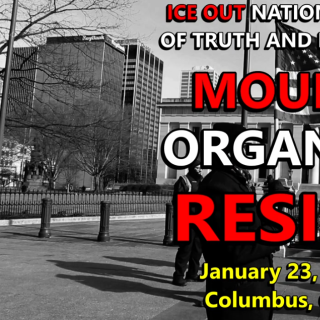The number of people living with HIV in the U.S. is decreasing. With the advancement of antiretroviral therapy, people living with the condition can experience viral suppression and longer life expectancy. However, around the world, HIV remains one of the most serious public health challenges. In 2017, more than 36 million people were living with HIV/AIDS. Of these, 1.8 million were children under the age of 15.
One subset population that is often forgotten in the war on AIDS are those people living in refugee camps. People seeking refuge from countries with higher-than-average HIV numbers and no treatment can spread the disease throughout a camp quickly. Refugee camps in the U.S. and other countries lack HIV education and treatment. Healthcare is a human rights issue that Americans often take for granted. We must gain a better understanding of this issue so that we can demand assistance for those living in camps and advocate for better HIV programming.
Current State of Refugees in AmericaThe United States has offered refuge to people fleeing their homeland because of persecution and war for decades. According to the International Rescue Committee (IRC), Inc, global refugee settlement needs increased 17% from 2018 to 2019. However, the current US administration cut the number of refugees allowed to a historic low number of 30,000. With the U.S. bowing out of assisting vulnerable populations when they need it most, we’re adding to global problems such as war, discrimination, and the lack of fundamental human rights.
The IRC also reported that they assisted 2,175 adults and their children in 2018. Some women come to the U.S. with HIV/AIDS infections and significant healthcare needs. They may have been forced to have sex to survive famine or war. What’s more, because their home country lacks healthcare services, many parents don’t understand that HIV is passed from mother to child during birth and even through breastmilk. Another area of concern in camps is the lack of safe sex practices, which allow HIV/AIDS to spread quickly throughout one establishment.
Offering Solutions to the ProblemThe American government needs to continue to allow refugees to seek asylum in our country. We experience freedoms each day that others can only dream. However, we must understand the impact of the HIV problem among refugees and search for solutions. Here are a few ways we can help those people who are more vulnerable to HIV/AIDS.
Identify At-Risk PopulationsHIV/AIDS doesn’t discriminate. However, there are populations of people who are at a higher risk of contracting the virus than others. Because HIV doesn’t show signs right away, individuals can be HIV positive and not know it. If these individuals engage in behaviors that increase their risk, they could spread the virus to others quickly. A few at-risk populations include gay and bisexual men, young adults who don’t use safe-sex practices, and children born to HIV positive mothers.
Offer HIV/AIDS EducationPeople living in deplorable situations in their home country often lack education about HIV symptoms. Refugees have the fundamental human right to knowledge of self-care behaviors to keep them safe. A few strategies they should be taught include using condoms, choosing less risky sexual practices, and limiting their number of sexual partners.
They must also be taught that HIV causes both acute and chronic symptoms so that they can identify them and seek treatment. A few things they should look for include:
Acute Symptoms:
- Fever
- Exhaustion
- Nausea
- Headaches
- Enlarged lymph nodes
- Diarrhea
Chronic Symptoms:
- Difficulty breathing
- Fever
- Diarrhea
- Long-term swelling of glands
- Coughing
- Sudden weight loss
Refugees are people. They have a history, but more importantly, they have a future. Once they are here, shouldn’t they be given the same basic human rights that you and I enjoy each day?
Cities across the country should open their doors to refugees seeking job opportunities, health care, and a place to call home. We must open our hearts to these people so that they can be successful and healthy. If given the right opportunities, refugees can enjoy success as employees. Moreso, many refugees become successful entrepreneurs and business owners. One study even found that the number of self-employed workers born outside of the U.S. more than doubled between 1994 and 2015. With more support, refugees can add to the American economy and be successful, healthy, and prosperous citizens.
Looking to the Future of Refugee HealthThe United States has long been at the forefront of cutting edge medical technology and education. While our healthcare system is far from perfect, we must remember that at least we have the right to receive healthcare in the United States. Now that you know more about the refugee health issues, isn’t time to do more than just celebrate World Refugee Day?
If you’re looking for more ways to help, consider donating funds for more education and healthcare. You can also contact Congress and the current administration to let them know how you feel. Complete the I Stand With Refugees card to show your support and stand with the banned. The more we do today to help those displaced from their home countries, the better our world will be for future citizens.



